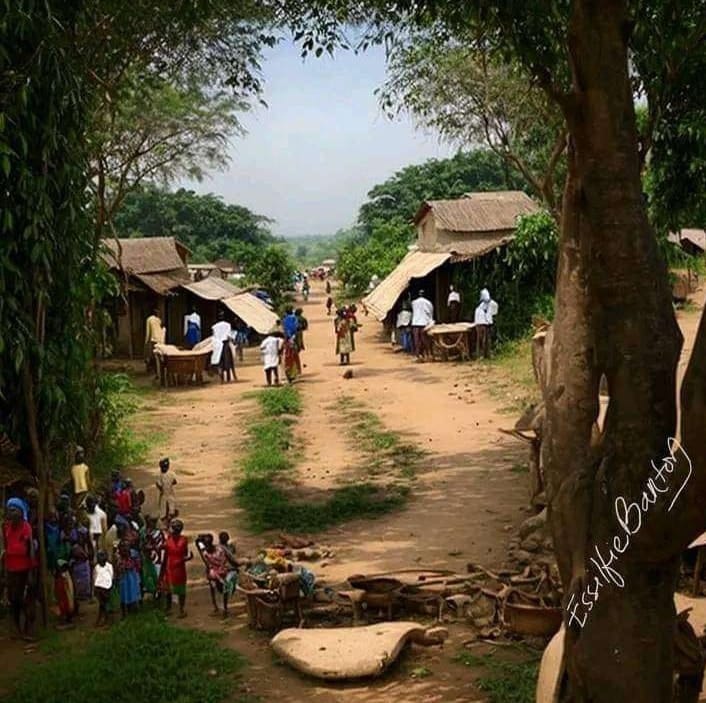
Hidden in plain sight, Africans are in the thick of the kind of history-making that will define the 21st century.
In 2024, Africa presents a paradox. Its population is growing fast, but its economy is growing slow. Conflicts are expanding not contracting. And yet its influence in the world is growing faster than ever. How come?
This is a result of two global trends that will help shape the world in the 21st century.
One is familiar to everyone and much discussed by analysts and the media: the geopolitical shift to a multipolar world. This gives African nations greater agency in the world, if they choose and are able to use it. Many African governments rightly say they want to pick and choose their own international partners, maintain good relations with all corners of the world; and the powers, old and new, great and middling, are beating a path to their door, keen to get their votes in the UN and their support for various international causes, from climate change to ‘civilizational values’, from human rights to national rights.
But it is the second trend that is equally significant and largely happening under the radar: the spread of Africans across the globe in the 21st century, the ever-growing African diaspora that is beginning to make its presence and influence felt in a growing number of places. When we look back in 50 or 100 years people will say: yes, that made a major difference to the world.
It is, of course, scarcely a new trend. From the beginning of humanity, it was the migration of homo sapiens out of Africa that began the human trajectory on which we are still engaged. In ancient and classical times, African influences can be found in Greece, Rome, the Arab world and beyond. The biggest migration was not voluntary but forced, through the trans-Atlantic slave trade, which took millions of Africans by brute force to the Caribbean and Americas, in a wholly subordinate role from which it took them over a hundred years to recover equal rights.
In the 19th and 20th centuries, migration flowed the other way, from Europe to Africa, but not as workers – as colonists, settlers, merchants and administrators. With independence in the second half of the 20th century, that flow reversed. Many Europeans returned home, and a growing number of Africans followed them. The 20th century also saw the most remarkable growth in Africa’s population, from around 140 million in 1900 to over 1.4 billion today (according to latest estimates), made possible by the transformation of economic and health conditions on the continent.
All such bursts in population growth elsewhere have given rise to outward migration. Since the 19th century, major migrations from Ireland, China, India, Armenia, Lebanon, Palestine, and of Jewish people from many countries have all had significant economic and sometimes political effects, both on the countries of origin and the countries of destination. People are like water: they will go wherever they need to; and if they cannot make a living in one place, they will move to another where they can.
The great African migration that is gathering impetus will have a similarly profound impact. Like previous migrants, Africans bring with them their own particular skills and characteristics. They are enormously enterprising, creative and connected – to each other and to the continent. Most visible to the rest of the world up to now has been African creativity, in music, the arts, film and literature, and achievement in the realm of sport. Africa is already a global force in the world of music, its beats setting a new standard for music elsewhere. This impact feeds back to the countries of origin, not just as remittances, but as economic and cultural influence. The rapidly expanding Nigerian diaspora is especially influential in business and culture, veritably a force to be reckoned with – as Nigeria’s presidential candidates recognised in the run-up to the last election. If Bola Tinubu’s new government can create a country and an economy that people are willing to invest in, Nigeria could begin to realise its potential as one of the world’s new ‘middle powers.’ But for now it remains a big ‘if’.
The opportunities for them certainly exist overseas. The Old World is ageing. The demand for labour in Europe, North America and Japan – and soon in China – is growing, a demand that young people from Africa (and Latin America) would be happy to meet.
But the obstacles to them doing so are severe. On top of the residue of racism left by the slave trade and European colonisation, voters in many prosperous countries are becoming less secure and more insular, reflected in the rise of nativist right-wing movements that seek to exclude foreigners and reduce or even stop immigration altogether, despite the shortage of workers. Unlike the European colonists of the 19th century, African migrants cannot force their way in. But they will prove hard to stop if the employment opportunities exist.
What does this mean for Africa? It means that at the level of people, even if not in trade or finance, Africa’s weight and influence in the world is rising. Many of the migrants seek to assimilate. Some – in the US and UK certainly – go into politics and make their voice heard. But most also retain close links with their families and countries of origin.
What is striking is how widespread African communities have become. In Jonny Pitts’ phrase, there is a whole culture of Afropean communities across Europe and into Russia. Who knew there were 16,000 Africans studying in Ukraine until they fled with the outbreak of war in 2022? As Chimamanda Ngozi Adichie describes, there is a big community in America. And in China, an African community of several hundred thousand persists despite the hostility Africans faced during Covid.
Everywhere, these communities will leave an indelible mark on the world and carry a lasting significance at home and overseas.

